#per audacia au
Text
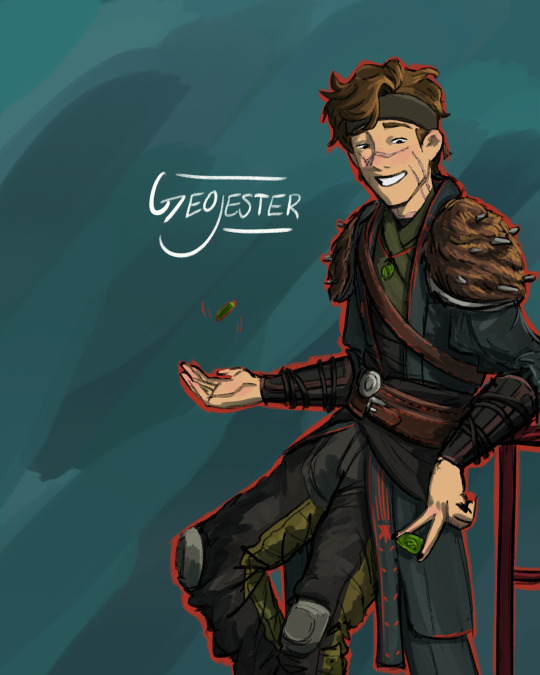
Scar — A rogue Lightbearer and the organizer of Gambit
Drifter!Scar sketch for @baronetcoins's Destiny AU that they've given me brainrot for
The AU is called Per Audacia and I highly suggest checking out their stories because it's all I've been thinking about for the past week
Accompanying piece to Emissary!Grian
105 notes
·
View notes
Note
wrapped game: 17 <3
[send me a number 1-100 and i will try to write a short drabble based off whatever song that corresponds to in my spotify wrapped]
17: The Fall by Lovejoy
Aspiration for a different destination to me
Across the Pennines, there's a thin blue line, a knife and a mall
Would do something, if it wasn't also half my fault
'Cause I'm so high, my brain can't even look at the fall
And when you've reached the top there's nowhere else to go but-
Quackity's tablet was left on the kitchen table when he crept out in the morning early enough to read the latest reports. If he didn't want Wilbur to read his intelligence briefings, he should stop falling asleep and leaving it unattended. He flipped through the latest on Eros idly when he saw Ranboo's name on the top of them—they were the ones most likely to be reasonable.
"You're not as quiet as you think you are." Quackity leaned against the wall, Pato hovering over his shoulder and wrapped hastily in his cloak.
"And you haven't changed your password." Wilbur kept reading. They'd included pictures of the ziggurat, the pyramid. Another evil defeated. His fingers traced the alien architecture, stark black against the endless snow.
"Maybe you just see what I want you to see."
"You wanted me to see this?" He hit play on a video marked Consensus//Clearance. It was a shaky video from inside a helmet, capturing a snippet of a battle. The user slammed their hand into the ground and summoned a wall of ice which shattered a group of screebs into thousands of shards. "A new element?"
"That's enough television for today." Quackity snatched the tablet from his hands.
"You're no fun."
"It's no fun if I give you all the answers either." He rolled his eyes and slipped out the door. Wilbur stood to follow him, then sat back down. A new element. A planet made of ice. A pyramid.
"Sa-" He started to speak, and then stopped. He'd just have to do it on his own.
#ask the baronet#my writing#spotify wrapped ask game#per audacia au#uhh remember that one of my aus? me neither wow it's been a while#also: keep sending me these if you want to I'll keep doing them#slightly suggestive implications#and a bit of a direct prequel to the first fic i wrote for this au
4 notes
·
View notes
Text
2023 Word Count
Total: 104,266 words
DSMP Firefly AU: 45,953
CF12: 12,505
Per Audacia AU: 17,333
Other/Misc: 28,475
kind of wild to see how much I actually wrote over the course of the year
I don't think I'd have ever expected to pass 100k so that's pretty awesome
I've already begun tracking my words for 2024 and I'm excited to finally be able to share what I've been working on (the ff au has 1 or 2 chapters left before it's done and I can start posting it)
2 notes
·
View notes
Note
fic writer ask game: 5, 14, 15, 17?
5. What’s a fic idea you’ve had that you will never write?
The DSMP Speed Racer AU (I think I told you about this one). I like the idea but I don't plan to take it any further than in my brain
14. If you could see one of your fics adapted into a visual medium, such as comic or film, which fan fic would you pick?
Lmao ok. This one's funny to me because I was considering trying to adapt my stories into comics, but ultimately scrapped the idea bc I'm way out of my depth. I can draw and I can write, but I haven't practiced enough with comics as a medium (although who knows? it may happen in the future)
If I had to pick one fic to adapt, I think it'd have to be Requiem for the Departed. I think the story and pacing would work for a film, specifically one with a longer runtime
Tbh I might have to make another post about this going into more detail
15. How do you come up with titles for your fics/chapters?
It varies. Sometimes, I'll use songs/lyrics. You'd see that most with my DSMP fics. I believe only one of my Destiny fics has a song title, though more songs probably appear in chapter titles
If I'm not using a song, I'll try to come up with something that I feel encapsulates the subject or feeling of the fic. Sometimes I'll have an idea right away, but sometimes I'll have a whole list of scrapped titles before I get to the one I like
16. At what point in the process do you come up with titles?
It depends on the fic, but usually quite late. Titles are usually one of the last things I think about because I have to write the story before I can find a title that works for it if that makes sense
My first two Destiny fics are still in my google docs as "The Story" and "The Sequel" lmao. I didn't title them until I got to the title field on Ao3
On the other hand, I had the title for And A Song picked out before I was halfway through, and I knew what I was going to call some of the Per Audacia fics before I even started writing. So there's definitely a spectrum for me when it comes to titles
Thanks for the ask :3
fic writer ask game
5 notes
·
View notes
Text
Germaine Dulac

Germaine Dulac, regista e produttrice e teorica cinematografica, antesignana dell’avanguardia francese, ha giocato un ruolo fondamentale nell’evoluzione del cinema inteso come arte e come pratica sociale.
Femminista e socialista, ha sperimentato e portato avanti il suo concetto di cinema come strumento per veicolare idee e progresso.
Unica donna protagonista della scena impressionista e prima a portare la condizione femminile e la difficoltà dei rapporti di coppia sullo schermo, ha diretto più di 30 opere.
Ha propugnato una fusione tra strutture narrative del cinema di consumo e stile dell’avanguardia, tra industria e arte, formalismo e psicologismo.
Nata Charlotte Elisabeth Germaine Saisset-Schneider ad Amiens, in Francia, il 17 novembre 1882, era sposata con il romanziere Louis-Albert Dulac con cui, nel 1915 ha creato la casa di produzione Delia e di cui ha tenuto il cognome anche dopo il loro divorzio. Sua compagna di una vita è stata la regista Marie-Anne Colson-Mallevile.
Agli inizi del ‘900 ha scritto, da critica teatrale per il periodico femminista La française, di cui divenne direttrice.
Nel 1915 ha esordito al cinema con Les sœurs ennemies, i suoi primi film più conosciuti sono La cigarette (1919) e La fête espagnole (1920). Del 1921 è La belle dame sans merci, che è la storia di un adulterio dove acquistano un ruolo centrale l’ambientazione, la scenografia e gli oggetti quotidiani, attraverso un uso fugace ma ripetuto del dettaglio. La sua opera più celebrata La souriante madame Beudet del 1923, è un dramma psicologico che affronta il tema del rapporto di coppia, raccontando di una vita coniugale regolata dalla noia e dalle convenzioni borghesi.
In una società traumatizzata dalla guerra e segnata da un netto contrasto tra un discorso morale ufficiale e conservatore e le nuove libertà dei ruggenti anni ’20, riteneva che il moderno strumento del cinema potesse esprimere, meglio di qualsiasi altra arte, la “vita interiore” e la realtà sociale dei nuovi uomini e delle nuove donne.
Nei suoi film, carichi di bellezza, complessità e audacia, rendeva astratte associazioni visive ed effetti tecnici per trasmettere i suoi ideali sociali progressisti, attraverso una complessa rete di significati basati sulle suggestioni.
Dopo il 1924 si è impegnata per sviluppare nell’opinione pubblica l’interesse per la settima arte attraverso la fonazione dei cineclub. Ha fatto parte della cosiddetta seconda avanguardia, creando impasti di musica e immagini con Disque 927 (1927) o Thèmes et Variations (1928). Intraprendendo la strada di film senza narrazione, ha portato sullo schermo il soggetto surrealista di Antonin Artaud La coquille et le clergyman, del 1928.
Con l’avvento del sonoro, non potendo più realizzare i suoi progetti in piena libertà, ha rinunciato a proposte più commerciali per dedicarsi esclusivamente alla direzione di cinegiornali, i materiali migliori furono raccolti nel lungometraggio Le cinéma au service de l’Histoire del 1937.
I suoi principi ideologici sono contenuti nel saggio Le estetiche, gli ostacoli, la cinematografia integrale, pubblicato nel 1927 sulla rivista L’Art Cinématographique.
Tra i suoi scritti sono da segnalare Le cinéma d’avant-garde, in Le cinéma: des origines à nos jours, del 1932 e la raccolta di saggi Écrits sur le cinéma. 1919-1937.
È morta a Parigi il 20 luglio 1942, le sue spoglie sono nel cimitero di Père-Lachaise, a Parigi.
1 note
·
View note
Text
Rome, Byzantium and NATO. Grand Strategy of the West and Georgia (Colchis/Lazica and Iberia)
Tedo Dundua, Emil Avdaliani
Introduction
There are two ways to prove Georgia’s place within the NATO Alliance. First is the current argument urging for total Euro-Atlantic unity, next – historical one. Previous pan-European (Roman and Early Byzantine) military presence in Georgia can be applied to the present discussion. The article covers this issue.
Roman Period. Frankish Limitanei in Lazica
Before being totally destroyed, Roman Imperial security system actually had shown three gradual phases of development.
Large number of the Italian colonists with the best technologies, swift and comfortable communications, the most prominent industrial output, Roman citizenship, municipal freedom – that was the Roman gift for the Western provinces in the 1st-2nd cc. A.D. Sincere intimacy with the metropolis had been founded as a direct result of complete satisfaction. It paved the way to the Romanization. As for the Greeks, the Romans reserved a quiet life and economic stability. Still beyond the Roman Rhine, Danube and Pontus there were others favouring this concept of pan-European integration. The happy client kings used to be awarded with the Roman citizenship. And for the Julio-Claudians these client kingdoms formed the first defense-line of the Imperial territories. A little behind, the whole perimeter was dotted by solid legionary concentrations, proving the system to be impregnable. No cardinal changes took place in the era of the Antonines, except for annexation of the client kingdoms and breaking the big army concentrations in favour of scattering the legions along the whole frontier. In both cases, after defeating comparatively weak enemy at the border, the Romans usually attacked their territory. This system of security is called forward defense.
Greeks and the Romans were sending more and more working hands towards industry, but not to manufacture the means of production. As a result, population was growing, but not amount of industrial goods per capita. Prices rushed high for the Italian produce, demanding damping for provincial food and raw materials, thus weakening the sympathies between the European subjects of the Roman Empire. Some even started to search for a relief beyond the Rhine and Danube rivers. Many things happened that completely changed the defensive strategy, namely: 1. economic crisis; 2. weakening of the integratory links; 3. socio-economic animation of “Barbaricum”; 4. financial chaos and some professional regiments converted into limitanei. From now on they are to stand the first strike and evacuate the whole frontier folk into citadels, thus wearing down the enemy. And there were large and mobile field armies deployed far behind those self-contained strongholds to cut down any invasion into the depth. This system shaped in the times of Diocletian is called defense-in-depth.
But before this new system was finally established, the Romans had been fighting those already easily passing the border wherever they could manage to concentrate large army-units. In the early days of the Empire praetorians formed the only Imperial reserve. And now Gallienus recruited special mobile reserve-regiments. Name for this defensive system is elastic defense.
Security system had to be changed at least because of emergence of the Germanic seaborne attacks from the 3rd c. everywhere at the seas that prolonged the line of the frontier (Ed. N. Luttwak. The Grand Strategy of the Roman Empire. From the First Century A.D. to the Third. Baltimore. 1981, pp. 192-193; T. Dundua, N. Silagadze. European Industrial Complexes of I Cycle of Capitalism and the Georgian Western Affiliations. Historical and Numismatic Tale. Tbilisi. 2005, pp. 5-7; T. Dundua. North and South. Tbilisi. 2001, pp. 8-15).
Full-time units, legions, alae of cavalry, cohortes of infantry and mixed cohortes equitatae served the forward defense-system. Part-time border force of limitanei had appeared and auxiliary alae and cohorts had disappeared; and regular mobile reserve – comitatenses – substituted legions, fixed at the border. All they served new security system – defense-in-depth. The whole 3rd c. saw these changes, finally shaped in the times of Constantine I. Septimius Severus was the first to form a certain kind of reserve. He stationed II Parthica in Albanum, increased praetorian and urban cohorts in number. And Gallienus created special cavalry units to serve as a reserve (Ed. N. Luttwak. The Grand Strategy, pp. 173, 184).
In the 3rd c. large federations of Franki and Alemanni began to threaten the Rhine-frontier. And the Goths had already reached Dniester by 238 (Ed. N. Luttwak. The Grand Strategy, pp. 128, 146). Franks attacked Gaul, Alemanns – Italy. From the great deeds of Emperor M. Aurelius Probus (276-282) the most important is the deliverance of seventy Gaulic cities. He drove back Franks and Alemanns, four hundred thousand of them being killed. Probus passed the Rhine, and returned back with considerable tribute of corn, cattle, and horses. Sixteen thousand Germanic recruits were dispersed among the Roman units. Other captive or fugitive barbarians gained a new status, that of part-time peasant-soldiers (limitanei). Emperor transported a considerable body of Vandals into Cambridgeshire, great number of Franks and Gepidae were settled on the banks of the Danube and the Rhine, Bastarnae – in Thrace. Pontic (The Black Sea) coast was reserved for some more Franks (Ed. Gibbon. The Decline and Fall of the Roman Empire. Vol. 1. London. 1993 (first published in 1776), pp. 362-368). But which one exactly? This is to be discussed.
According to Ed. Gibbon, Franks settled at the sea-coast of Pontus had to check the Alani inroads. A fleet stationed in one of the harbors of the Euxine fell into their hands, and they resolved, through unknown seas, to explore their way from the mouth of Phasis (river Rioni in West Georgia) to that of the Rhine. They easily escaped through the Bosphorus and the Hellespont, and cruising along the Mediterranean, indulged their appetite for revenge and plunder by frequent descents on the shores of Asia, Greece and Africa. City of Syracuse was sacked by the barbarians. Franks proceeded to the columns of Hercules, coasted round Spain and Gaul, and steering their course through the British channel, at length finished their voyage by landing in safety on the Batavian or Frisian shores (Ed. Gibbon. The Decline and Fall . . ., pp. 367-368).
What is this whole story based on? Zosimus and one panegyric to Constantius Chlorus contributed to it.
Narrating about the events in the past, in the times of divine Probus, author of this panegyric mentions undeserved success of the small Frankish band, who, sailing from Pontus on the captured fleet, ravished Greece and Asia, damaged Africa, stormed Syracuse, and passing through the columns of the Hercules, reached the ocean (Recursabat quippe in animos illa sub diuo Probo paucorum ex Francis captiuorum incredibilis audacia et indigna felicitas, qui a Ponto usque correptis nauibus Graeciam Asiamque populati nec impune plerisque Libyae litoribus appulsi ipsas postremo naualibus quondam uictoriis nobiles ceperant Syracusas et immenso itinere peruecti oceanum, qua terras irrumpit, intrauerant atque ita euentu temeritatis ostenderant nihil esse clausum piraticae desperationi, quo nauigiis pateret accessus.) (Panegyricus Constantio Dictus, IV, XVIII. Panégyriques Latins. T. I (I-V). Texte Établi et Traduit par Édourd Galletier. Paris. 1949, pp. 96-97).
Zosimus tells us about the Franks having appealed to the Emperor, and having a country given to them. A part of them afterwards revolted, and having collected a great number of ships, disturbed all Greece; from whence they proceeded into Sicily, to Syracuse, which they attacked, and killed many people there. At length they arrived in Africa, whence though they were repulsed by a body of men from Carthage, yet they returned home without any great loss (Zosimus. New History. Book 1. London. 1814).
There is no mention of mouth of the river of Phasis as a spring-board for the expedition in the sources. Then, what was in Gibbon’s mind? Perhaps, logic, excluding the possibilities.
Indeed, the Northern Black Sea coast is beyond the Roman rule. The Western shores, and the Balkans are already packed with the barbarians. Southern littoral was less used for receptio, while Lazica (West Georgia) and Pontic Limes cannot be argued. And something strange had happened to this limes in the 3rd c. Now threat comes not from the front, the Romans have Lazi client king dwelling there, but – from behind, because of the Goths living at the Northern shores.
We can only guess that the Franks were in Lazica as limitanei. But we really know nothing about how they were coordinating with the full-time units, their number before and after the revolt, what was the life like for those who stayed loyal.
Still, it seems quite reasonable that the bargain of receptio-system should have been distributed among all Roman provinces to keep the centre undisturbed from the barbaric influx. In the 3rd c. the Empire is able to do this, not after.
Byzantines in Georgia
With the death of Theodosius, last Emperor of the united Roman world, in 395 A.D. the Empire was divided into two almost same-sized halves. The Western part, while defending itself throughout the 5th c. from various barbarian hordes (at the time, the Western part was defended by regiments consisting mainly of barbarians) coming from beyond the Rhine river, had an almost destroyed tax-paying system. This very factor did not allow the Imperial administration based in Ravenna to muster enough economic and military resources for effective defense of the Northern borders. Last Western Roman Emperors were mere puppets in the hands of barbarian warlords – the process which culminated in deposing the last Emperor Romulus Augustulus in 476.
The Eastern part (Byzantium) with the capital in Constantinople, on the other hand, showed greater resilience in managing internal problems and external threats. Byzantium managed simultaneously to hold off the barbarians coming from the North and the Sassanians from the East. This was made possible by an efficient tax-paying system the Byzantines inherited from the Romans, which, in turn, made it possible to field large armies to defend the Imperial borders on several fronts and at the same time wage offensive wars (Ed. N. Luttwak. The Grand Strategy of the Byzantine Empire. Harvard. 2009, pp. 1-16. The most apparent case is the reign of Justinian when, while waging war on Vandals in North Africa and the Ostrogoths in Italy, Constantinople still had to defend its Eastern border from the Sassanians and the Danube river from the Slavs).
The Byzantines did not have such abundant resources as the Romans had during the first three centuries A.D. Moreover, the Eastern half was spread on three continents – Europe, Asia and Africa – making the Imperial borders highly vulnerable to foreign powers. In other words, the geography put the Byzantine Empire at a huge disadvantage as the Danube river was a barrier easy to cross for the Goths, or in later centuries Huns, Slavs and Avars. In Africa, the desert frontier stretching for more than a thousand kilometers had no geographic barrier to rely on making rich Tripolitania and Byzacena and the South of Egypt exposed to attacks from the Berbers and other nomadic groups. The Eastern frontier too was highly vulnerable as the Arab groupings could easily reach Palestine and Syrian cities from the Syro-Mesopotamian desert. In the North Mesopotamia Byzantium faced its greatest rival, Sassanian Iran, and this portion too needed to be defended with the assemblage of large military power, whether through the field armies or military fortifications. Moreover, the Byzantines had little geographic depth along its entire Eastern frontier to fully employ the defense-in-depth strategy (e.g., in the Balkans Constantinople did enjoy large geographic depth necessary for the defense. This was apparent when the Huns under Attila and then the Avars in early 7th c. broke through the Danubian defenses and reached Constantinople. However, military regiments placed in various fortresses and the distance of several hundreds of kilometers (from the Danube to the capital) enabled the Emperor, whether it was Theodosius II or Heraclius, to thwart the barbarian onslaughts). The similar situation was in Africa. Since Asia Minor, Balkans, Egypt and Syria were the most prosperous lands in terms of population number and the level of urbanization, the functioning of the Empire was contingent upon the defense of these provinces. Overall, the Byzantines were at much worse geographic situation than their Western counterparts.
Thus, in order to survive in this difficult geopolitical situation and preserve the Empire from early 5th c. to the 7th c., the Byzantines had to develop a whole set of military strategies. In other words, the Byzantines were no less successful than the Flavians, Antonines and late 3rd c. Emperors. However, the Byzantines made numerous changes by adapting to new circumstances. Since Constantinople had less economic and human resources than the united Roman Empire, the Byzantines always tried to use less military power and employ more diplomacy and the propagation of the Christian religion (G. Fowden. Consequences of the Monotheism in Late Antiquity. Princeton. 1993, pp. 80-100) to safeguard Imperial borders.
The Byzantines inherited from the Romans military presence in Lazica and alliance with Kartli/Iberia (East and South Georgia). This military tradition goes back to the first two centuries A.D. and represents a forward-defense strategy. Byzantine garrisons, which existed in Lazica from the 5th c. till the Arab invasion of the Middle East in the 30s of the 7th c. (T. Dundua. Influx of Roman Coins in Georgia. Roman Coins Outside the Empire. Ways and Phases, Contexts and Functions. Proceedings of ESF/SCH Exploratory Workshop. Nieborow (Poland). 2005. Moneta. Wetteren. 2008, p. 313), did not change their location. However, the role of Lazica considerably increased as in late 4th c. the so-called “Völkerwanderung” or Migration period began. Since the new peoples such as Huns, Avars etc. lived in the Eurasian steppes, which bordered the Caucasian range and the Danube river, Constantinople had to face a two-front war from the North (from the Eastern and Western parts of the Black Sea). Therefore, the Byzantine garrisons in Lazica were transformed into forward posts for collecting information about new peoples coming from the steppes and, in case of need, establishing first diplomatic contacts too.
For example, when approximately in 557 the Avars reached the Volga river, in modern-day Southern Russia, in a year or two through the Alans they sent an embassy to Constantinople. But, before the letter was received in the capital, first it had been passed through the hands of Byzantine generals stationed in Lazica (Ed. N. Luttwak. The Grand Strategy of the Byzantine Empire, p. 59). The role of Lazica increased also because of the mountain passes through which the newly-coming nomads from the North could potentially penetrate into the South and cause havoc even in the Eastern provinces of the Byzantine Empire as it happened in 395 when the Huns reached as far as Antioch (P. Heather. The Fall of the Roman Empire. A New History of Rome and the Barbarians. Oxford. 2007, pp. 145-154). The Byzantine officials also used the passes to distract nomad leaders by making them to take much longer roads to reach the Imperial capital. Menander Protector preserves the bitter complaint of a Turkic chief from the steppes, North to the Caucasian range, dated by 577: “As for you Romans, why do you take my envoys through the Caucasus to Byzantium, alleging that there is no other route for them to travel? You do this so that I might be deterred from attacking the Roman Empire by the difficult terrain (i.e. high mountains which for horses are very hard to cross). But I know very well where the river Danapris (Dniepr) flows, and the Istros (Danube) and the Hebrus (Maritsa, Meric)” (Excerpta de Legationibus Romanorum ad Gentes, 14, in The History of Menander the Guardsman. Translated by R. C. Blockley. London. 1985, p. 175).
Lazica’s military importance increased even more following the stand-off between Justinian and the Sassanian Shahanshah Khusro I Anushirvan in mid-6th c. By the time Iran had already been increasing its political and military pressure towards North and West, which culminated in the abolition of the Albanian and Armenian kingdoms during the 5th-early-6th cc. As was said, mid-6th c. saw renewed warfare between the empires and the focus of the conflict, traditionally along with the North Mesopotamia, also fell on Lazica. Iran was interested in occupying the Eastern Black Sea coast to pressure Constantinople (which by the time was already embroiled in a war with the Ostrogoths in Italy) into signing a more winning peace treaty for Ctesiphon. The Byzantines knew well that if the Sassanians managed to occupy the Lazica shore, Iranian military vessels in the near future would make their way through the Bosphorus directly to Constantinople. This is well reflected in one of the passages from Procopius – Lazi sent an embassy to Khusro to explain the geopolitical advantages which the Iranians would gain through controlling Lazica and the Byzantine fortresses there: “To the realm of Persia you will add a most ancient kingdom, and as a result of this you will have the power of your sway extended, and it will come about that you will have a part in the sea of the Romans through our land, and after thou hast built ships in this sea (i.e. Black Sea), O King, it be possible for thee with no trouble to set foot in the palace in Byzantium. For there is no obstacle between. And one might add that the plundering of the land of the Romans every year by the barbarians along the boundary will be under your control. For surely you also are acquainted with the fact that up till now the land of the Lazi has been a bulwark against the Caucasus Mountains” (De Bello Persico. II. 15; Procopius of Caesarea. History of the Wars. Translated by H. B. Dewing. Cambridge. Massachusetts. 1914, pp. 225-226).
The above analysis of the Roman and Early Byzantine military strategies towards their neighbors quite clearly shows that Georgia always had its own place within the pan-European military alliances. Why not bring it back?
NATO and Georgia
NATO alliance’s strategy could be likened to the best military traditions of Rome and Byzantium discussed above. As was the case with these two Empires, NATO too regards the Black Sea and its Eastern shore – Georgia – as fundamental for the alliance’s strategy in the Eastern Europe and the Black Sea region overall.
As for the Romans and Byzantines before, for NATO too Georgia’s Black Sea shore would allow the alliance to expand militarily in the region and control crucial land and maritime military routes from the North to the Black Sea basin. There is also an economic dimension since Georgia serves as a vital transit route for oil/gas pipelines, important railroads connecting the Caspian and Black Seas. Indeed, as Roman and Byzantine army units before, NATO’s presence in Georgia would serve as a defensive shield for trade in the region which in Antiquity was often referred to as a part of the famous Silk Road and nowadays is called as the South Caucasus energy and transport corridor because of oil/gas transport infrastructure.
This strategic vision is well reflected in one of the recent NATO-Georgia Commission statement: “Georgia is one of the Alliance’s closest operational partners, and an Enhanced Opportunities Partner. Allies highly appreciate Georgia’s steadfast support for NATO’s operations and missions…” (NATO-Georgia Commission Statement. Oct. 2019.
https://www.nato.int/cps/en/natohq/official_texts_169323.htm?selectedLocale=en).
Direct allusion to the alliance’s Black Sea strategy is also seen in another passage from the same Commission statement: “NATO values Georgia’s engagement in, and contributions to, strategic discussion and mutual awareness, on security in the Black Sea region” (NATO-Georgia Commission Statement. Oct. 2019. https://www.nato.int/cps/en/natohq/official_texts_169323.htm?selectedLocale=en).
Thus NATO alliance’s strategic vision for Georgia and the wider Black Sea region is similar to how the Romans and Byzantines saw this part of the world.
0 notes
Text

“Hmm so they killed the last one did they? Too bad the original ahamkara are still around, just not ahamkara. Foolish guardians don’t know what the ancient wish dragons could do. This generation that they eradicated are so much weaker than their fore bearers.” The fae rolled the empty shell of one of their ghosts between her claws.
“To think that the war between light and dark would involve my own kind though. That blasted traveler has been nothing but trouble since it was created millennia ago.”
0 notes
Video
Karine Deshayes, French Lyric mezzo-soprano ··Balkis, The Queen Of Sheba",cavatina,Plus grand dans son obscurité ( (Bigger in its darkness ) Act III Scene I La Reine De Saba (The Queen Of Sheba) Grand Opera By Charles Gounod , l’Orchestre National du Capitole, direction Tugan Sokhiev Russian Director Ochestra -Friday 12 2016-Nominated to the lyric singer The Victors Of Classical Music ( Les Vectores De La Musique Classique) Ceremony-Plus grand, dans son obscurité (Bigger in its darkness ) Lyrics English -Here I am, alone finally!
What a burning flame
Shine the eyes of this proud stranger!
Your pride, your courage in the midst of danger,
They have touched my soul! ...
To be a queen, alas! Should I stop being a woman?
Bigger in its darkness
That a king adorned with a crown
It seemed to carry in itself
His greatness and his royalty!
It seemed to carry in itself
His greatness and his royalty!
Fatal oath that binds me!
Fatal oath that binds me!
Resign yourself, my heart; forget him!
Resign yourself, my heart; forget him!
Resign yourself, resign yourself, my heart; forget him! ...
Forget him forget him,
Forget, who could I see,
From his arm dominating the space,
The King defying the vain power
And scare him with his audacity!
Forget it, when yesterday again,
By the whim of his genius,
His hands, in porphyry and gold
Form created and harmony! ...
In the light of a fiery sky
I admired him taming the flame!
At my feet I saw it as a pillar,
And love invades my soul!
And love invades my soul!
Bigger in its darkness
That a king adorned with the crown,
It seemed to carry in itself
His greatness and his royalty!
It seemed to carry in itself
His greatness and his royalty!
It seemed to carry in itself
His greatness, His greatness and his royalt- Plus grand, dans son obscurité (Más grande en su oscuridad) Lyrics Spanish -¡Aquí estoy, solo finalmente!
Que ardiente llama
¡Brilla los ojos de este orgulloso extraño!
Su orgullo, su coraje en medio del peligro,
Han tocado mi alma! ...
Para ser reina, ¡ay! ¿ debo dejar de ser una mujer?
Más grande en su oscuridad
Que un rey adornado con una corona
Parecía llevar en sí mismo
¡Su grandeza y su realeza!
Parecía llevar en sí mismo
¡Su grandeza y su realeza!
¡Juramento fatal que me ata!
¡Juramento fatal que me ata!
Resígnate a ti mismo, corazón mio; olvidalo!
Resígnate a ti mismo, corazón mio; olvidalo!
Resígnate, resígnate a ti mismo, corazón mio ; olvidarlo! ...
Olvídalo, olvídalo,
Olvidar, a quien podía ver,
Desde su brazo dominando el espacio,
El Rey desafiando el poder vano
¡Y asustarlo con su audacia!
Olvídalo, cuando ayer otra vez,
Por el capricho de su genio,
Sus manos, en pórfido y oro
¡Forma creada y armonía! ...
A la luz de un cielo ardiente
¡Lo admiraba domesticando la llama!
A mis pies lo vi como un pilar,
¡Y el amor invade mi alma!
¡Y el amor invade mi alma!
Más grande en su oscuridad
Que un rey adornado con la corona,
Parecía llevar en sí mismo
¡Su grandeza y su realeza!
Parecía llevar en sí mismo
¡Su grandeza y su realeza!
Parecía llevar en sí mismo
¡Su grandeza, Su grandeza y su realeza!-Plus grand dans son obscurité French Lyrics-.Me voilà, seule enfin!
De quelle ardente flamme
Brillaient les yeux de ce fier étranger!
Son orgueil, son courage en milieu tu danger,
Ont su toucher mon âme !...
Pour être reine, hélas! cesse-t-on d'être femme?
Plus grand dans son obscurité
Qu'un roi paré du diadème,
Il semblait porter en lui-même
Sa grandeur et sa royauté!
Il semblait porter en lui-même
Sa grandeur et sa royauté!
Funeste serment qui me lie!
Funeste serment qui me lie!
Résigne-toi, mon coeur; oublie!
Résigne-toi, mon coeur; oublie!
Résigne-toi, Résigne-toi, mon coeur; oublie!...
L'oublier, L'oublier,
L'oublier, lui que j'ai pu voir,
De son bras dominant l'espace,
Du Roi braver le vain pouvoir
Et l'effrayer par son audace!
L'oublier, quand hier encore,
Au caprice de son génie,
Ses mains, dans le porphyre et l'or
Créaient la forme et l'harmonie!...
Aux lueurs d'un ciel embrasé
Je l'admirais domptant la flamme!
A mes pieds je l'ai vu brisé,
Et l'amour envahit mon âme!
Et l'amour envahit mon âme!
Plus grand dans son obscurité
Qu'un roi paré du diadème, )
Il semblait porter en lui-même
Sa grandeur et sa royauté!
Il semblait porter en lui-même
Sa grandeur et sa royauté!
Il semblait porter en lui-même
Sa grandeur, Sa grandeur et sa royauté!
--Plus grand, dans son obscurité (Più grande nella sua oscurità) Italian Lyrics - Eccomi, finalmente solo!
Che fiamma ardente
Brillar gli occhi di questo orgoglioso strano!
Il tuo orgoglio, il tuo coraggio in mezzo al pericolo,
Hanno toccato la mia anima! ...
Per essere una regina, ahimè! Dovrei smettere di essere una donna?
Più grande nella sua oscurità
Che un re adornato con una corona
Sembrava portare in sé
La sua grandezza e la sua regalità!
Sembrava portare in sé
La sua grandezza e la sua regalità!
Un giuramento mortale che mi lega!
Un giuramento mortale che mi lega!
Rassegnati, cuore mio; dimenticalo!
Rassegnati, cuore mio; dimenticalo!
Rassegnati, rassegnati, cuore mio; dimenticalo! ...
Dimentica che lo dimentichi,
Dimentica, chi potrei vedere,
Dal suo braccio che domina lo spazio,
Il re sfidando il potere invano
E spaventalo con la sua audacia!
Scordatelo, quando ancora ieri,
Per il capriccio del suo genio,
Le sue mani, in porfido e oro
Forma creata e armonia! ...
Alla luce di un cielo ardente
L'ho ammirato domare la fiamma!
Ai miei piedi l'ho visto come un pilastro,
E l'amore invade la mia anima!
E l'amore invade la mia anima!
Più grande nella sua oscurità
Che un re adornato con la corona,
Sembrava portare in sé
La sua grandezza e la sua regalità!
Sembrava portare in sé
La sua grandezza e la sua regalità!
Sembrava portare in sé
La sua grandezza, la sua grandezza e il suo royalt-
0 notes
Text
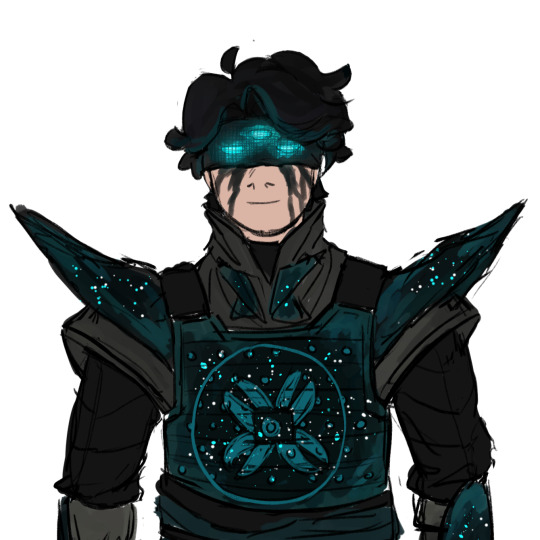
The Forgotten Blade
(warm up sketch of Per Audacia!Cub)
#per audacia au#hermitcraft art#cubfan135#cubfan fanart#destiny au#might end up tweaking this design a bit#pa!cub#geo art
36 notes
·
View notes
Text
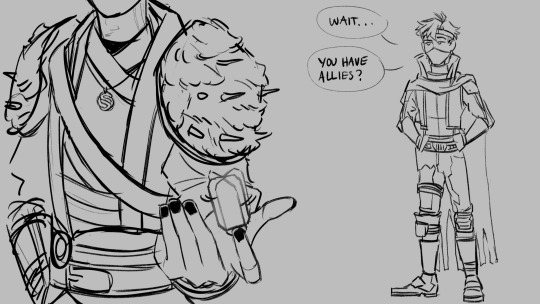
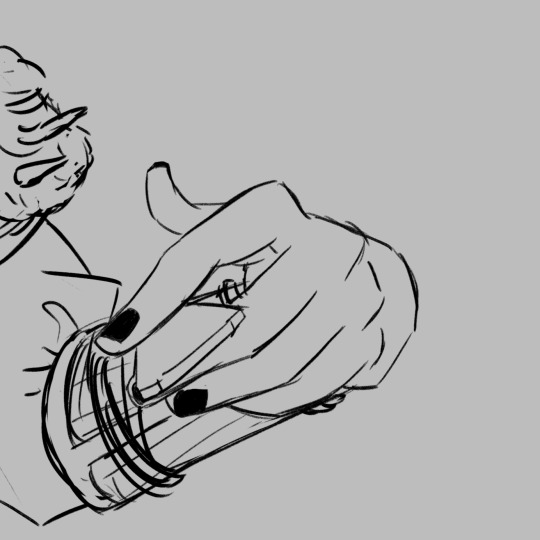


Last Life and the Dark Age aren't so different
24 notes
·
View notes
Text
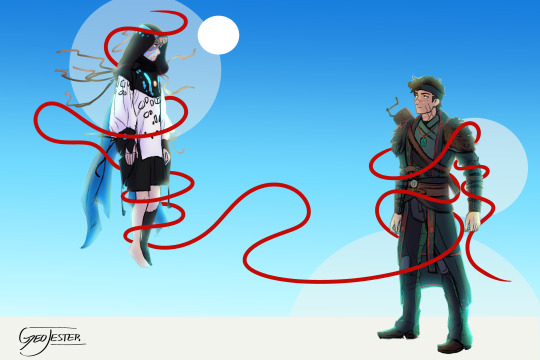
A Dredgen and an Emissary meet in the Observed Realms
21 notes
·
View notes
Text
your feet find purchase in shifting sands
Fandom: Hermitcraft/Life Series
Rating: General Audiences
Warnings: No Archive Warnings Apply
Setting: Destiny AU
Relationships: Desert Duo (platonic), Grian & Mumbo
Info/Genre: Angst, Emotional Hurt/Comfort, Character Study, 5+1 Things
Words: 8.8k
Chapters: 6
Complete: Yes!
Summary:
The Watchers bear no understanding of human concepts. Not like the Emissary does. They do not know the meaning of things like fear or regret.
The Emissary knows. Or at least, he thinks he does.
ALTERNATIVELY:
Five times Grian doesn't understand humanity and one time he remembers how
Read on Ao3
20 notes
·
View notes
Text
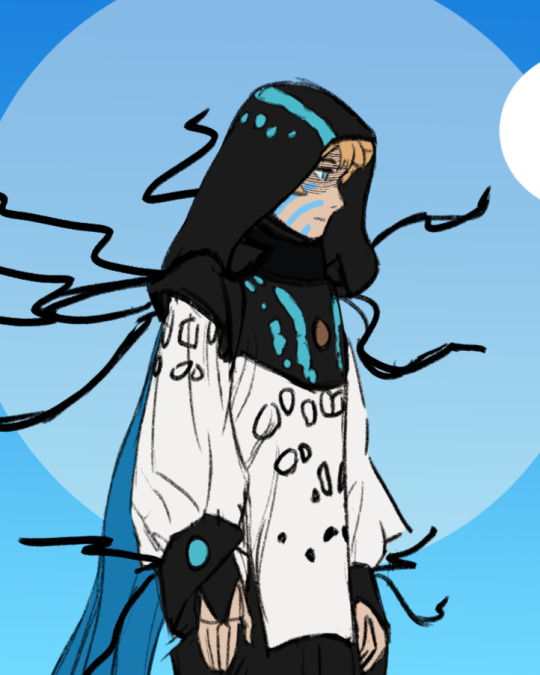
his will is no longer wholly his own
11 notes
·
View notes
Text
everything dies (but only if you let it)
Fandom: Hermitcraft/Life Series
Rating: General Audiences
Warnings: No Archive Warnings Apply
Setting: Destiny AU
Info/Genre: Angst, Emotional Hurt/Comfort
Words: 4.4k
Summary:
The Emissary insists that he is no longer Grian. Scar knows better.
OR
Scar's POV of the aftermath of shifting sands chapters 5 and 6.
[fic link]
10 notes
·
View notes
Text
Anything to make me feel less numb
A/N: Happy Valentine’s Day! I’ve been noodling about this AU for months now, and when I saw you were also into Destiny? Well, I couldn’t resist. Hope you enjoy! (Title from It’s All Futile! It’s All Pointless! By Lovejoy) @arcaneglitchlitch @mcyt-valentines
A desolate moon, a desperate man, and a bad idea (Read it on Ao3 here)
Europa had to be one of the worst places in the solar system. Freezing cold, with wind that always tried to blow you away and snowdrifts that piled up to your waist in places. Tommy shivered and pulled his cloak tighter around him, mentally thanking Techno for gifting him one lined with fur.
Kristin’s voice crackled to life over the radio. “The last time we were able to make contact with Wilbur, he was around here. Hopefully he hasn’t died of exposure yet.”
“Not funny.” Tommy shoved his face into the fur collar.
She sighed. “I know. Look out for him? He’s been acting strange since—”
He bristled. “You would be too, if you lost your ghost.”
“I was trying to be delicate.”
“Whatever. This place gives me the creeps.”
Kristin laughed a little. “You’re telling me. That pyramid is the worst; I don’t know why he’d wind up here.”
“I’m worried I might.” Tommy set his mouth and held out his hand for Henry to summon his sparrow.
Racing along the surface made the biting wind even more unpleasant—he had never been more thankful for his helmet. Without it, he’d definitely have frostbite after just a few minutes' ride. Insulated armor could only do so much against the sheer force of a planet that seemed to hate him specifically. How Wilbur was faring with his tendency to eschew heavier armor… well, Tommy wasn’t thinking about it. He wasn’t thinking about it so hard.
“It’s like finding a needle in a haystack,” Henry muttered, mostly to himself. “If Friend were here, I could just ping him, but…”
“I know,” Tommy snapped back. “We just have to find him on our own.”
“Did you ask Scar?” Kristin asked.
“I did. No sign of him. He was heading back to the Tower, though, so I’m going to go check out the campsite anyway.”
“If it got cold enough, he might have gone there for shelter,” Henry finished.
“Well, good luck. I’m running late for a Consensus meeting. Keep me up to date?”
“Will do.” Henry gave a little twirl.
Tommy pressed down on the accelerator as he crested another dune of snow. As soon as he rounded the corner into the flat plane that surrounded the campsite, he spotted a black structure in the distance, clearly built in the architecture of the pyramids. Standing on its steps was a familiar set of brown robes.
“Wilbur!” He yelled over the helmet’s external speakers. “Where have you been?”
Wilbur didn’t turn around, continuing his climb towards the top of the structure. Tommy raced the last feet between them, stopping just before the structure and using the light to propel himself to land just in front of Wilbur.
“What are you doing?” He grabbed onto Wilbur’s shoulders. “We’ve all been worried about you. We should get inside, it’s fucking freezing out here.”
“You can stop treating me like I’m fragile.” Wilbur shook off his hands.
“Still, we shouldn’t stay around here for too long. This place is full of darkness.”
“That’s rather the point,” he snapped back.
“You can’t be serious.” Tommy looked at his face, obscured by his helmet. “We just killed Eramis, man. We tried to stop stasis.”
“Well, what if we didn’t have to? Scar wields it just fine.” Wilbur attempted to push forward. He was no match for Tommy’s light-assisted strength.
“Yeah, but he’s Scar. You’re—”
“I’m what, Tommy. Why don’t you tell me.”
“You’re mortal, for one.” Tommy’s hands hovered in the air, halfway between resting at his sides and reaching for Wilbur again. “What if it kills you?”
“So what if it does?” Wilbur shouted. “What if it kills me? What if it leads me to die right now, instead of slowly withering of old age? What if it stops you from watching me grow senile, while you stay trapped in the body of a fucking teenager? What then?”
“I don’t want you to die.”
“I’m already dead.” Wilbur deflated. “It’s just a matter of when it finally catches up to me.”
“Scar has a ghost.”
“And I don’t. So we can stop beating around the bush.”
“Wilbur—”
“Please. I’m so tired of being weak.”
Tommy inhaled for a second and stepped to the side. There was an awkward moment as Wilbur tried to get around him up the stairs without falling off and breaking his ankle. Tommy wound up grabbing him by the shoulders again and slightly picking him up so they could manage it.
On the other side, Wilbur dusted off his robes with as much dignity as he could and continued climbing the ziggurat. Henry hovered nervously over Tommy’s shoulder, watching as he climbed towards the top. Tommy took a few steps back.
At the peak, Wilbur reached into the aether and pulled out a shard made of the same strange material as the pyramids in a vaguely triangular shape. Tommy and Henry both watched as he considered it for a moment and before gently offering it toward the center of the ziggurat where an array of four floating shapes waited.
For an instant, the world seemed to hold its breath. Even the raging wind quieted to the point it only barely stirred the bottom of Wilbur’s robes. His hand stayed in the same offering position as he began to gently float into the air, shards of ice coalescing around his body.
For a moment, Tommy tried to reach out to shatter them, but his hand seemed stopped by an invisible force. All he could do was watch as the ice froze Wilbur into a statue. All the air rushed forward, whipping his cloak around him, before blowing back with an audibly whoosh as the ice exploded into a million tiny shards that reflected the blinding light of the endless snow back at him. It looked as though Wilbur was surrounded by a halo as he floated, suspended in air for another few moments before gently falling back to the ground.
“Well.” He turned back to Tommy, playing with crystals of ice he formed and dispersed in his hand. “What do you say we go test this out? You and me, just like the old days.”
Tommy took a second to jam his all doubts into the little box in his chest. “You know, I hear there’s a group of fallen living in the old Braytech facility. Bunch of real wronguns.”
“Well.” Wilbur grabbed his scout rifle off his back. “Sounds like we have a mission.”
#mcyt-valentines#dsmp fic#destiny 2#per audacia au#my writing#when i say i've been thinking about this au for months i mean it#and now I will continue to brainrot harder
15 notes
·
View notes
Text
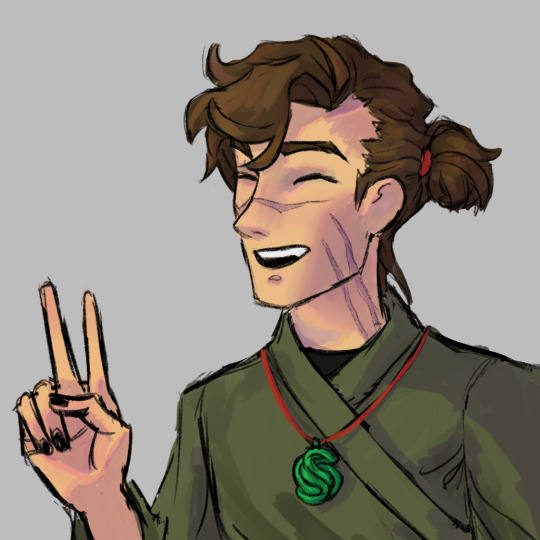
Scar with a man bun was a real game-changer in this fandom, huh?
#per audacia au#<- technically bc that's the version of scar I drew#hermitcraft art#hc art#gtws fanart#pa!scar#sketch#geo art
14 notes
·
View notes